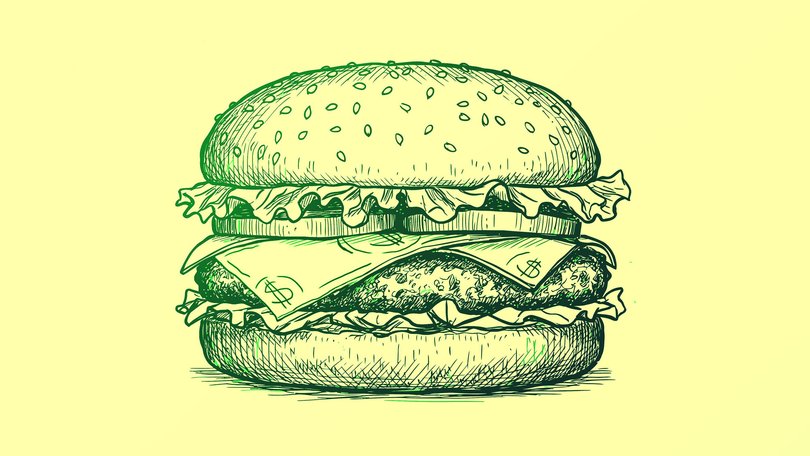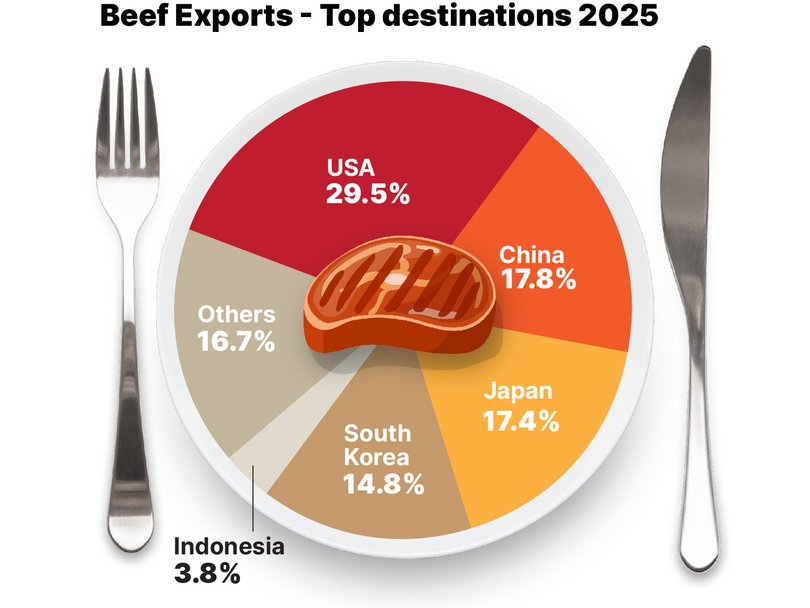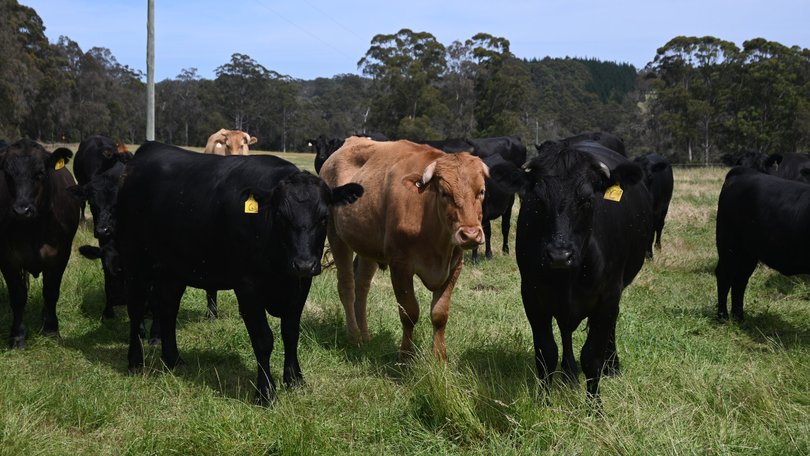Australia won’t be mooved on biosecurity over beef tariffs as G7 meat-up likely for Trump and Albanese
Anthony Albanese has vowed not to compromise on Australia’s biosecurity in lead-up to G7 face-to-face with Donald Trump

The politically sensitive meat industry has returned to focus as Prime Minister Anthony Albanese prepares to meet US President Donald Trump on the sidelines of the G7 summit in Canada later this month.
If the meeting goes ahead, the Trump administration’s sweeping global tariffs will be high on the agenda, and reports suggest Australia could leverage small, safe changes to its import ban on some slaughtered beef from the US to secure an exemption.
Responding to questions on Friday about whether Australia might relax its longstanding biosecurity restrictions on American beef imports, Mr Albanese issued an unequivocal rejection.
Sign up to The Nightly's newsletters.
Get the first look at the digital newspaper, curated daily stories and breaking headlines delivered to your inbox.
By continuing you agree to our Terms and Privacy Policy.“No, we will not change or compromise any of the issues regarding biosecurity, full stop, exclamation mark. It’s simply not worth it,” he told ABC Radio Melbourne.
“I’m looking forward to meeting Donald Trump face to face,” he said.
“We’ve had three conversations. They’ve been constructive, they’ve been polite, and they’ve been respectful. That’s the way I deal with people, and I’ll deal with that in an appropriate way, in our national interest.”
The meeting is not expected to seal a final deal but could lay the groundwork for further talks to lift US levies the Prime Minister has described as an “act of economic self-harm”.
But beef will be a sticking point in any attempt for Australia to negotiate a carve-out from US tariffs. President Trump has repeatedly criticised Australia’s treatment of American beef in his “Liberation Day” tariff announcement on April 2, as well as in social media posts, accusing the country of maintaining unfair barriers and claiming the US “can’t sell a single hamburger” down under.

Last year, Australia exported more than $6 billion worth of beef to the US, mostly as lean trimmings for hamburger patties. Industry figures estimate Australian beef is used in up to six million American burgers each day.
America wants that trade to be reciprocal, and is pointing to an Australian ban on imports on biosecurity grounds.
But Australian meat industry leaders reject suggestions that US beef is banned. They say the problem lies within the structure of the US supply chain, not in Australian policy.
“Under current arrangements, United States beef producers have had access to Australian markets since 2019 if they can ensure that the animals are born, raised and slaughtered in the US,” said Cattle Australia Chief Executive Dr Chris Parker.
“These are the same standards that Australian beef exporters adhere to in order to sell beef into the US.
“Our position is that the US needs to be able to demonstrate it can either trace cattle born in Mexico and Canada, or has systems that are equivalent to Australia’s traceability, before imports of meat could occur from non-US cattle.”
Reports the Government was considering a tweak of biosecurity laws to use beef as a bargaining chip in talks to lock in an exemption from the Trump administration’s sweeping tariffs sparked an immediate political stoush on Friday.
Kevin Hogan, the shadow trade minister, demanded Labor “not slacken our biosecurity laws for any country”.
The country’s import policies were “based on rigorous, science-based assessments — not political expediency” Mr Hogan said, adding that the principle of equivalency must be applied to US exporters.
“Australia’s National Livestock Identification System (NLIS) provides whole-of-life traceability for every animal from paddock to plate. If the US wants to expand beef access to our market, they must meet the same standards they expect of us,” he said.
Nationals leader David Littleproud said he feared the Government would “trade away” Australia’s strong biosecurity advantage.
“Rather than jeopardise our beef industry, Australia should be leveraging our strong historical ties and areas such as critical minerals an AUKUS to obtain a fair deal,” he said.

Minister for Agriculture Julie Collins rejected that biosecurity rules would be traded away.
“All products entering Australia have to meet rigorous biosecurity standards,” Ms Collins said.
“Any decision to allow expanded access for US beef to Australia would be made based on science and evidence.”
Health Minister Mark Butler weighed in on Sunrise. “We’ll be making a decision on the national interest . . . that’s what we’ve done in relation to pharmaceuticals,” he said, referring to the decades-long battle by US pharmaceutical giants to dismantle Australia’s Pharmaceuticals Benefits Scheme (PBS).
“We’ve said there’s no way our PBS will be on the negotiating table and we won’t compromise our biosecurity laws either.”
The potential fracas comes as Americans are consuming the most Australian beef in a decade.
The US is now the No. 1 destination for Australian beef, with exports leaping 141 per cent above the five-year average in April.
April exports were up 15 per cent over March alone and 37 per cent higher year on year to 37,213 tonnes shipped.
American demand is being driven by a cattle herd that has shrunk to its lowest level since the 1950s, due to a prolonged drought among other factors.
That has pushed the price of imported beef to a record high of $10.53 per kilo.
Australian beef exporters have been the beneficiaries of that, but also of a 15 collapse in US exports, primarily to markets, China, Japan and Korea.
In April, exports to China rose 6 per cent on the previous month and were 45 per cent higher than a year earlier. Shipments to Japan lifted 15 per cent in April, putting volumes 15 per cent above the five-year average, while exports to Korea jumped 23 per cent for the month, 27 per cent year-on-year, and 49 per cent above the five-year April average.
America is playing the long game by trying to secure Australian market access at a time when domestic supply struggles to keep up with demand.
In the interim, US consumers are paying a 10 per cent premium on already record high prices.
But the turmoil created by Trump’s tariffs are a clear reminder of the importance of diversifying markets, and Australia’s beef industry is deeply aware of the danger that a biosecurity issue could have on one of the country’s most successful exports.
The industry’s caution is backed by stark economic modelling. A study by the Department of Agriculture’s economic bureau, ABARES, found that a major outbreak of foot-and-mouth disease could cost the Australian livestock sector over $50 billion in lost revenue over a decade. Even a small, quickly contained outbreak could still result in more than $5.6b in losses, mainly from collapsed export access and domestic oversupply.
With more than 60 per cent of Australian beef production exported to biosecurity-sensitive markets such as Japan, Korea and the US, the industry believes the risk of relaxing protocols for the sake of trade diplomacy is economically reckless.
And caving on beef may be premature, with US courts now reviewing whether Mr Trump overstepped his authority in imposing tariffs — traditionally a process that has to be agreed on by Congress.
Speaking last month, former Ambassador to the US Joe Hockey told the industry to “hold their nerve”.
“Our 10 per cent, let’s take it and run with it for the moment,” he told attendees at an exporters’ event.
“Let’s not be too loud about it. The Aussie dollar has fallen. In the case of beef producers, they need our beef. You know their herd is a mess at the moment. You all know that, so let’s just hold our nerve and work out what will get a win.”
